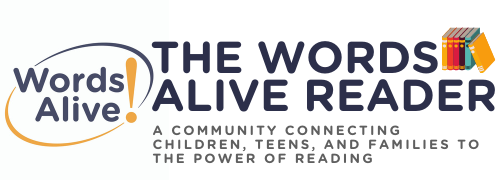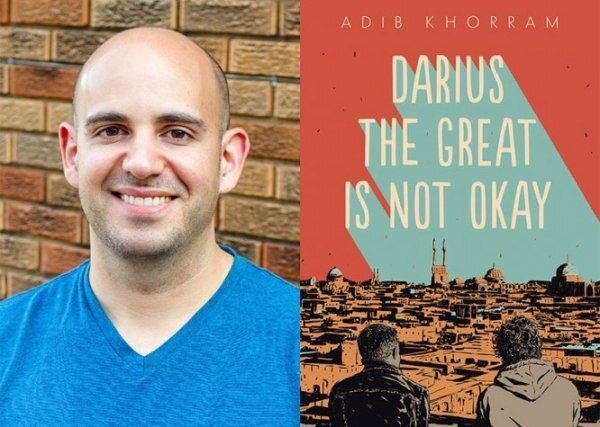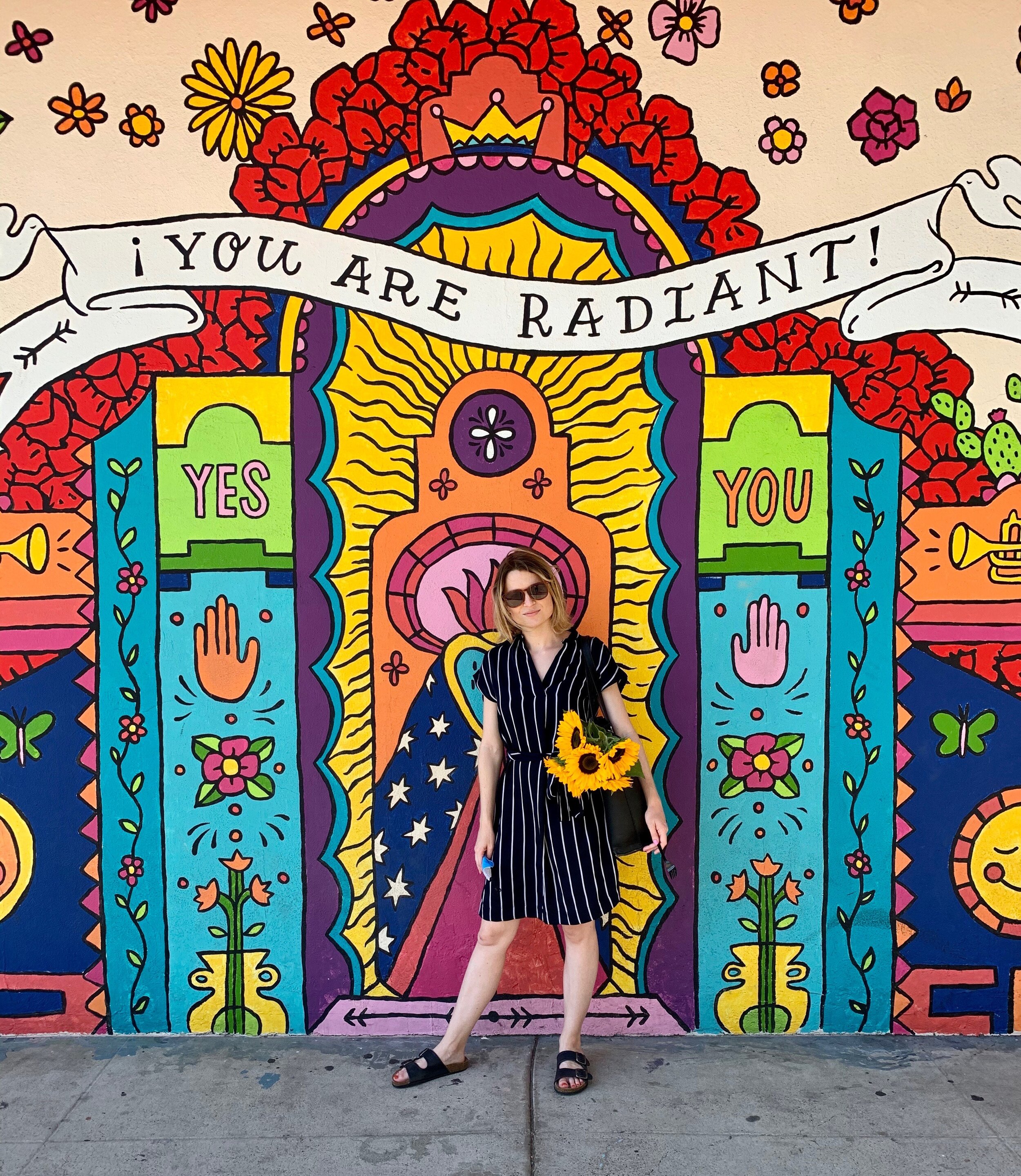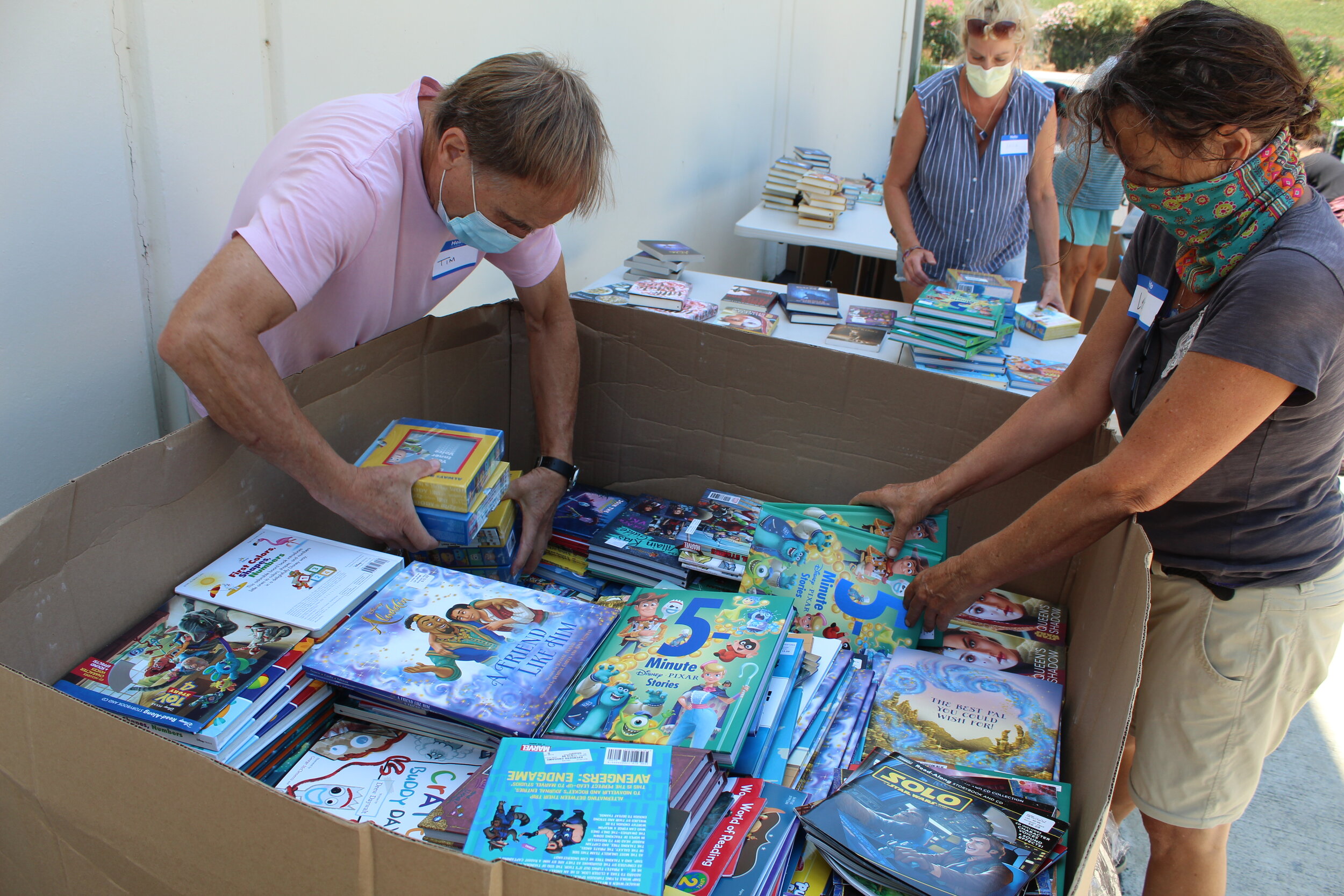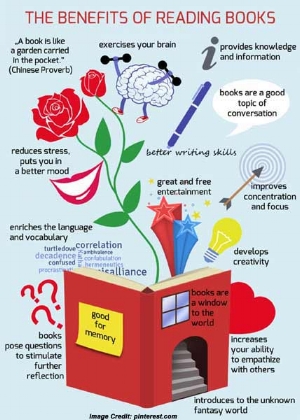Welcome to The Words Alive Reader, a regular newsletter keeping you up-to-date with the latest in how we've been connecting children, teens, and families to the power of reading. What have we been up to and how can you help? Read on to find out!
Author Adib Khorram Visits Words Alive Students
A picture of author Adib Khorram, next to the cover of his book Darius the Great is Not Okay.
"Sometimes you're afraid to start a story because it's getting at something that you don't want to share. My advice is to be brave and take it a little at a time." — Adib Khorram to Words Alive high school students
Acclaimed young adult author Adib Khorram recently visited one of our partner classrooms at San Ysidro High School to share his story and chat with students. Thank you to SYHS for partnering with us, to Adib for stopping by for a visit, and to the Words Alive volunteer who sponsored this experience for our students! Learn more about what Adib shared with our students and how they reacted here.
Plot Twist: Meher Gandhi
A picture of Meher Gandhi, our Engagement Volunteer of the Year.
Meet Meher Gandhi, an amazing Words Alive volunteer who supports us all the way from her home in India! She was recently named our Engagement Volunteer of the Year.
We talked to Meher about her love for literature, her experiences in volunteer leadership, and her international perspective on working together for literacy.
"We are really giving something to the community...not just in words, but in actions," she says. Read more here!
Oceanside Community Foundation Grants Words Alive $20,000
A screenshot from a Family Literacy Program session on Zoom. The kids are holding up their crafts to the camera.
Words Alive is partnering with the Oceanside Community Foundation to deliver our Family Literacy Program in the Oceanside community – connecting young children and families to the power of reading through play. So far, approximately 180 families have participated in this program year. Now, we are excited and grateful to share that the Oceanside Community Foundation has granted us $20,000 to expand our work in Oceanside with teen programming! The Oceanside Community Foundation has been an extremely supportive partner at every step of the process, and we are thrilled to continue working together.
Meet Our New Engagement Director, Alyssa Broda
A picture of Alyssa standing in front of a colorful mural that reads “You Are Radiant! Yes, You.”
We are so excited to announce the latest addition to the Words Alive team: our new Engagement Director, Alyssa Broda!
Alyssa is a dynamic fundraising professional with over 10 years of experience in the nonprofit sphere. Here at Words Alive, Alyssa is working towards helping the organization reach new levels of engagement amongst donors and volunteers.
Read more about her and what she’s bringing to Words Alive here!
Mental Health Month: Art & Lit
In honor of Mental Health Month, here are two ways that you can explore the connections between reading, art, education, and mental health with us.
1) Ben, a Words Alive volunteer and high school student, wrote a piece for our blog about how the pandemic has affected student mental health. Read the full blog post here.
2) With the trauma of the past year in mind, our Art & Lit project, created in partnership with ArtReach, was designed to help students explore mindfulness, emotional awareness, and belonging through connection with reading and art. This year, for the first time ever, the whole community can participate! Learn more here.
An example of this year’s Art & Lit Project: an identity circle drawn with red and gray markers.
Missed the Volunteer Appreciation Celebration?
The Words Alive logo, the words “12th Annual Volunteer Appreciation Celebration, Presented By” and the EY logo.
Did you miss our 12th Annual Volunteer Appreciation Celebration? Don't worry — we recorded it! Through our virtual program, you can watch the recording, hear from our presenting sponsor, EY, read about the incredible volunteers who were recognized at the Celebration, download special Words Alive bookmarks, and more.
We are so grateful to each and every one of our volunteers for helping us connect children, teens, and families to the power of reading. If you'd like to become a volunteer, click here to learn more.
This newsletter, in addition to our blog and social media content, is written by us, a cohort of volunteers! Do you love writing and have an interest in helping Words Alive create this type of content? We'd love your help! Email to learn more.
- Zoe, Eli, Nia and Titiksha, Words Alive Storytelling Team


